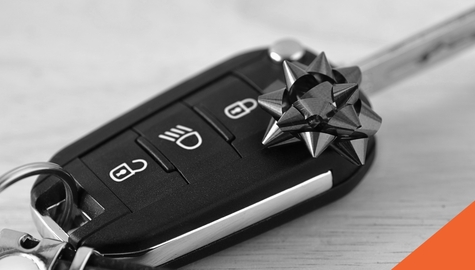Tips for When You Travel Alone
Friday, 22 July 2022
Traveling solo is a life-changing experience. You get the chance to meet new people, explore new places, and discover more about yourself. It can be intimidating to travel alone; anxiety, overwhelm, and loneliness are common to experience. Luckily, there are plenty of ways to make your solo travel super safe and fun! Follow our tips to travel alone that will help you plan an amazing solo adventure.
You gain a rewarding experience when you travel alone.
When you travel alone, it’s a great experience and can be very rewarding. The world is your oyster, as they say. As a solo traveller, you get to enjoy the freedom of doing whatever you want, when you want, without having to consult anyone else or compromise on your plans. This allows you to follow your own schedule, create your own itinerary, take your time exploring and discover things that would not have been possible if you had traveled with others.
Carefully choose your destination
When choosing a destination, make sure it’s safe and affordable. You don’t want to have to worry about your safety or run out of money while you’re away from home. Next, choose a place that is within your interests. Are you into art, history, and culture? Europe is a great option. Are you looking for adrenaline-pumping activities? Try South America or New Zealand. You can find beautiful scenery in every corner of the world, but don’t forget how gorgeous Canada is! You can also check out our top ten unconventional and adventurous destinations for your next workation if you can work from anywhere.
One thing to remember: avoid destinations with travel advisories. Use this trusted resource for up-to-date information. If it’s not safe, it’s best to save that country for another time; otherwise, your travel insurance might not cover you.
Plan Ahead and Have a Backup Plan When You Travel Alone
Planning ahead is always the best way to ensure that your trip goes smoothly. When you travel alone, it's even more important to make sure you have a backup plan in case things don't turn out. You will need to think through what to do in scenarios where your baggage is lost, your ID gets stolen, excursions or flights are cancelled, or you experience a medical emergency. Fortunately, travel insurance offers assistance for many of these issues.
When You Travel Alone, Keep Cash, ID, and Cards Safe
Make sure your cash, ID, and cards stay safe during your travels. Your passport and travel documents should always be kept with you in a carry-on or personal item. Keep wallets and cash in your front pocket to avoid pickpockets (more on that later). You might consider investing in a money belt or RFID wallet to prevent identity theft. It’s also a good idea to carry a photocopy or photo of your passport, ID, and travel documents so that if anything happens to them, they will be easier to replace.
How to Identify and Avoid Scams & Pickpockets
Avoiding scams is an important skill to master while you travel alone. Beware of situations where someone asks for help or offers a service – often it’s a trick to get you to give them money in exchange. It can seem simple such as guessing the weight of an object or signing a petition…just walk away.
Pickpocketing is common in large cities and crowded areas such as train stations and airports. Oftentimes pickpockets will work in pairs; one attempts to divert your attention while another sneakily steals something. Keep your back pockets empty because it’s the easiest place for thieves to grasp without being seen. Store your phone and wallet in your front pocket instead. When you travel alone with a backpack, constantly sway side-to-side to deter thieves (it’s harder for them to catch a moving target and you’ll be more likely to sense it). It might look unstylish, but wear backpacks and bags on the front of your person when possible.
If You Travel Alone, share your itinerary with someone you trust
When you travel alone, let a trusted friend or family member know your itinerary. They will be able to alert the authorities if something goes wrong or they don’t hear from you at certain checkpoints. Just send a quick email with your travel information so that someone knows where you’ll be. If your plans change, update your contact, too. Check in with them when flights land or you arrive safely at your accommodations to give them extra peace of mind.
Register as a Canadian Traveling Abroad
The Registration of Canadians Abroad is a free service for Canadians who travel or live abroad. It allows the Government of Canada to notify you in an emergency, and make sure your family and friends know how to get in touch with you.
Know Where to Find Canadian Embassies and Consulates When You Travel Alone
Canadian embassies and consulates are in many major cities around the world. If you need assistance, it's good to have their location and contact on hand. Find a full list of embassies and consulates here.
Canadian embassies and consulates assist Canadians in trouble when travelling abroad by providing information about local laws, customs, and culture; offering emergency consular services; issuing passports; handling visa applications; assisting with money transfers for travelers who need emergency funds from home; and more.
Get Travel Insurance When You Travel Alone
Travel insurance is crucial for solo travelers. If something goes wrong on your trip—losing your luggage or needing medical care—travel insurance will ease the financial burden of an unexpected situation. If you're traveling alone and want peace of mind that you'll be covered in case anything happens, we recommend getting a quote from a BIG broker!
The bottom line is, if you travel alone, you should be proud of it! Keep an open mind, be open to new experiences, and keep an eye out for new friends. We hope these tips helped you with your trip, and we wish you the best of luck in your travels.



